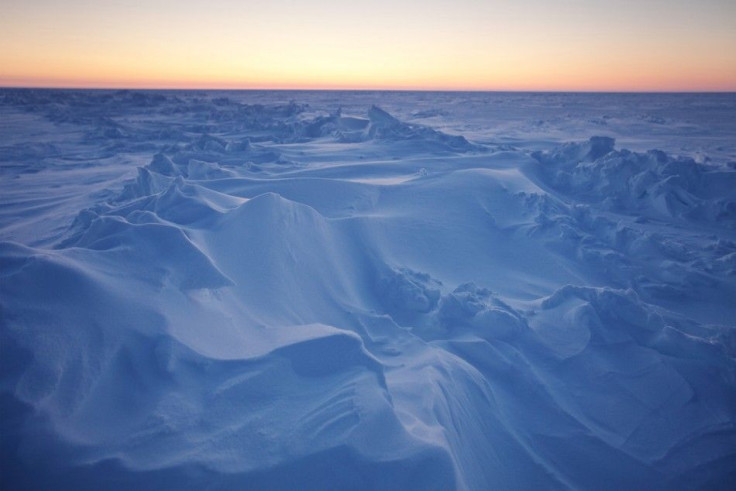Arctic Sea Ice May Temporarily Stabilize

Arctic sea ice may be fated to melt away with the continuous warming of the climate, but it could temporarily stabilize - maybe even expand ? over the next few decades, scientists in Boulder, Colo. say.
Computer modeling studies done by scientists at the National Center for Atmospheric Research, or NCAR, has reinforced previous findings that the level of Arctic sea ice loss seen in recent decades can't be explained only by natural causes, and that the ice will sooner or later disappear during summer if climate change continues.
The NCAR research team unexpectedly found that Arctic ice under existing climate conditions is as likely to expand as it is to contract for periods of up to about a decade.
The study can be seen in this week's Geophysical Research Letters, and was funded by the National Science Foundation.
"One of the results that surprised us all was the number of computer simulations that indicated a temporary halt to the loss of the ice," said NCAR scientist Jennifer Kay, who is also the study's lead author, in a statement. "The computer simulations suggest that we could see a 10-year period of stable ice or even a slight increase in the extent of the ice. Even though the observed ice loss has accelerated over the last decade, the fate of sea ice over the next decade depends not only on human activity but also on climate variability that cannot be predicted."
Varying atmospheric conditions such as wind patterns could temporarily halt the sea ice loss, Kay says. But the ultimate fate of the ice in a warming world is clear.
"When you start looking at longer-term trends, 50 or 60 years, there's no escaping the loss of ice in the summer," Kay says.
Kay and her colleagues also ran computer simulations seeking answers as to why the Arctic sea ice melted far more rapidly in the late 20th century than projected by computer models. They attribute approximately half the observed decline to human emissions of greenhouse gases, and the other half to climate variability.
Shrinking Ice
The extent of summertime Arctic sea ice has shrunk by about one third since 1979, according to studies. The ice returns each winter, but shrank to a record low in Sept. 2007, and is again extremely low this year, setting a monthly record low for July.
Scientists have warned just a few years ago that the Arctic could lose its summertime ice cover by the end of the century.
The authors of the new study note that it is difficult to separate the variability of weather systems and sea ice patterns from the ongoing impacts of human emissions of greenhouse gases.
"The changing Arctic climate is complicating matters," Kay says. "We can't measure natural variability now because, when temperatures warm and the ice thins, the ice variability changes and is not entirely natural."
© Copyright IBTimes 2024. All rights reserved.






















